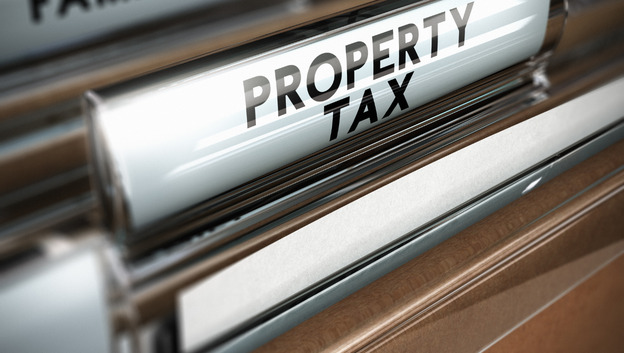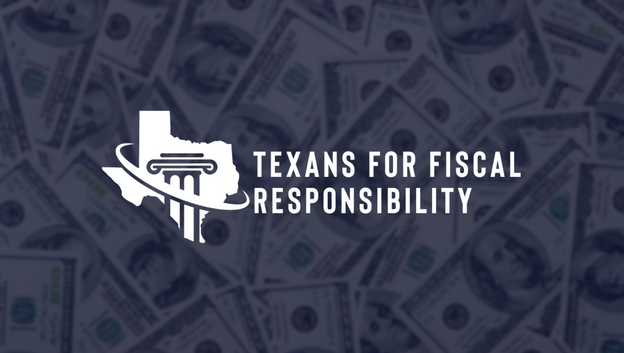
On Monday, lawmakers in both the Texas House of Representatives and Texas Senate began the process of prefiling legislation ahead of the upcoming 88th Legislative Session, and hundreds of bills have already been filed.
2023 will be a contentious year as the Legislature endeavors to deal with major issues such as school choice, election integrity, border security, and property taxes. Texans for Fiscal Responsibility has consistently advocated for the elimination of property taxes since the last legislative session, and this session will be no different. Our Texas Prosperity Plan includes efforts to use ongoing budget surpluses to pay down and eliminate school Maintenance & Operations (M&O) taxes (something that Governor Abbott has said was his goal of the legislative session). On the first day of filing, dozens of bills were filed that seek to reform property taxes in Texas. Below are some of the more interesting bills we have seen thus far:
Texas Senate
Senate Bill 152 by Kolkhorst – Relating to the limitation on increases in the appraised value of a residence homestead for ad valorem taxation.
Changes the limit of property tax growth from 10% year over year to 5%.
Senate Bill 178 by Kolkhorst – Relating to a limitation on increases in the appraised value of real property other than a residence homestead for ad valorem tax purposes.
Changes limits of how appraised value is calculated, setting a maximum.
Texas House
House Bill 29 by Murr – Relating to the elimination of school district maintenance and operations ad valorem taxes and the creation of a joint interim committee on the elimination of those taxes.
Seeks to eliminate school M&O but authorizes the use of an enrichment tax for ISDs.
House Bill 145 by Vasut – Relating to a limitation on increases in the appraised value of real property for ad valorem tax purposes.
Lowers the appraisal cap from 10% year over year to 3.5%.
House Bill 174 by Oliverson – Relating to the allocation and deposit of certain surplus state revenue to the property tax relief fund for use in reducing school district maintenance and operations ad valorem taxes.
This is the weaker version of his previous bill we supported. This uses 90% of surpluses to pay down M&O but offers to path to elimination.
House Bill 268 by Toth – Relating to the repeal of or limitations on certain state and local taxes, including school district maintenance and operations ad valorem taxes, the enactment of state and local value-added taxes, and related school finance reform; imposing taxes.
Creates a VAT (value-added tax) to help with elimination of school M&O taxes.
House Bill 612 by Shaheen – Relating to reducing school district maintenance and operations ad valorem taxes through the use of certain surplus state revenue.
Strongest tax bill filed so far. Uses surplus dollars to pay down school M&O and puts us on a path to elimination.
House Bill 629 by Troxclair – Relating to reducing school district maintenance and operations ad valorem taxes through the use of certain surplus state revenue.
Uses surplus to compress school M&O until it reaches zero. This is an elimination bill.
Rest assured that there will be many more bills filed this legislative session, and most who have been around the process for some time know that each legislative chamber reserves their first 20-30 bills for legislation deemed as priorities by leadership. When these bills are filed, they will tell us what form of property tax relief actually has a chance of passing into law. Typically, we have to wait well into the legislative session before we get to see those.
Of the bills that are currently filed, we are pretty disappointed. It is disappointing that State Rep. Tom Oliverson (Cypress), who championed property tax elimination in the second and third special sessions last cycle, decided to remove the elimination provision of his bill this session. It makes the bill considerably weaker. This is surprising because the number of co-authors of his stronger bill surpassed 50 House members.
On the bright side, both State Rep. Shaheen (R-Plano) and State Rep.-elect Ellen Troxclair have filed similar legislation to Oliverson’s original bill. Both of their bills use 90% of surplus dollars to pay down M&O until compression is zero. This would put us on a path toward elimination, but it differs from Oliverson’s previous bill in a few ways. These were the strongest two bills filed yesterday, and we are hopeful that they get traction in the upcoming session.
TFR will continue to keep our subscribers up to date on all of the bills filed leading up to the legislative session.
What is Next?
The next legislative session is set to begin in January of 2023. Your elected officials need to hear from you.
How can you help? Go read the Texas Prosperity Plan for yourself and voice your support for banning taxpayer-funded lobbying, eliminating the property tax, and freezing state spending by signing up to support the TPP. Sign up for The Fiscal Note to stay up to date on all fiscal issues that affect Texans, especially our broken property tax system. We CAN put Texas on a path to fiscal sanity and future prosperity if we amplify our voices loudly enough.




